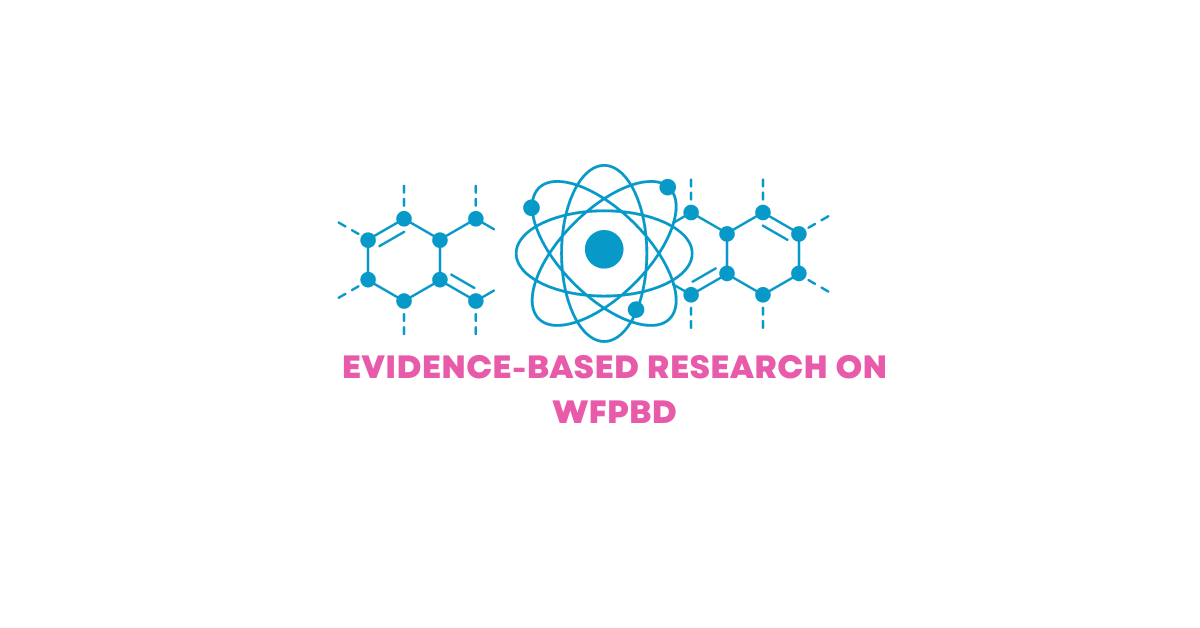Evidence-Based Research on WFPBD

I can bet
There are at least ten diets you’ve come across.
But what’s all the fuss about?
Today is this diet; the following day, there’s the other one trending.
Is there evidence-based research on these diets?
What about a whole food plant-based diet?
Is there evidence on the effectiveness of a whole food plant-based diet?
This article examines evidence-based research on WFPBD and explores its history, benefits, and uses in many fields.
It shows the power of WFPD.
It also gives a complete overview of research based on evidence.
Let’s dive right in.
Understanding the Rise of Plant-Based Diets and Their Impact on Health
Recently, plant-based diets have gained attention.
They receive praise for positively impacting health.
Whole Food Plant-Based Diet
Many see whole-food, plant-based diets, including veganism, as sustainable and ethical.
They are not just dietary trends. They are lifestyle choices based on compassion for animals and the environment.
So
The science of whole-food, plant-based diets focuses on food’s impact on health. It also covers sustainability and the environment.
Whole Food Plant-Based Diet Benefits
Many studies have shown the health benefits of plant-based diets.
Research on centenarians and longevity, biochemistry studies, and reversing chronic diseases support them.
It highlights their potential to reduce the risk of chronic diseases. These include heart disease, diabetes, and some cancers.
What does this mean to you?
Focus on whole plant-derived foods.
Here’s the deal
A whole-food, plant-based diet often results in better weight. It also helps with digestion, energy, and vitality.
Adopting a whole food plant-based diet is not about personal health. It also involves broader environmental concerns.
Another bonus for this diet…
Plant-based foods need fewer resources, like water and land, than animal agriculture.
Earlier on, we talked about many diets.
Is there evidence-based research on whole food and plant-based diets (WFPBD) for health and well-being?
The Science Behind Whole Food Plant-Based Nutrition: Exploring Key Studies and Findings
Evidence-Based Nutrition Research
Remember
To explore whole food plant-based nutrition, you must look at a lot of evidence.
This evidenced-based research supports the benefits of this dietary approach.
Whole Food Plant-Based Studies
Many studies have shown that plant-based diets lead to good health. They offer insights into their impact on well-being.
Studies show that a vegan diet has health benefits. It’s rich in plant-based foods.
Research has also shown that you tend to have lower rates of chronic diseases when you follow these diets. These include heart disease, diabetes, and some cancers.
Reviewing critical studies in this field can help you understand plant-based diet issues.
Science shows how plant-based diets affect health.
The studies show that a plant-centric diet is good. It improves heart health and weight management and reduces inflammation.
These studies show evidence of a whole food plant-based diet.
The Science Behind Whole Food Plant-Based Nutrition
As we learn about plant-based nutrition, we see that healthy plants can affect your health.
Exploring these fundamental studies and findings will give you valuable insights. They show the transformative power of plant-based eating on your health.
Is there any evidence that a whole food plant-based diet prevents chronic diseases?
Plant Power in Preventing Chronic Disease: An In-Depth Analysis of Research Findings
Evidence-Based Plant-Based Nutrition
If you’ve been following food and diet trends, there is enough evidence for the effectiveness of WFPBD.
Many have recently paid attention to plant-based nutrition. It’s a powerful tool for preventing chronic diseases.
Research highlights the benefits of adding plant-based foods to your diet.
Preventing Disease With WFPBD
Evidence shows that a plant-based diet can prevent chronic diseases. This evidence is especially true for heart disease.
Whole foods are rich in nutrients and antioxidants. They can cut the risk of heart issues.
Whole Food Plant-Based Diet & Heart Health

Evidence-based research has shown that plant-powered diets manage cholesterol, blood pressure, and inflammation. These are vital factors for heart health.
What, then, can you do?
Make proactive choices for a healthier lifestyle.
Choose fruits, vegetables, and whole grains. Also, choose legumes, nuts, and seeds. Avoid processed foods and animal products.
The wealth of scientific evidence supports plant-based nutrition. It makes a strong case for eating more plants.
Embrace the power of plants.
Make smart diet choices.
Let’s look at the evidence.
What does it entail?
The Environmental Impact of Plant-Based Eating: Insights from Evidence-Based Studies
More and more people are eating plant-based food. They do this for its health benefits and positive environmental effects.
Whole Food Plant-Based Environmental Impact Research
Researchers base studies on evidence.
They have shown that a plant-based diet can reduce our carbon footprint and help make the future more sustainable.
Research into the environmental impact of plant-based eating has revealed compelling findings.
Veganism and Sustainability Studies
Studies consistently show that veganism and other eco-friendly diets can cut emissions.
They also preserve water and reduce deforestation from animal farming.
Therefore, choose a whole-food, plant-based diet to regain your health and impact the environment.
You can help fight climate change and promote sustainability.
The evidence from the studies shows we must consider the broader effects.
Remember
Your food choices affect the planet.
Eco-Friendly Diets Research Findings
Do you strive for a greener society?
Research on plant-based eating can guide you. It helps you make informed choices that benefit your health and the planet.
But wait.
Do not these claims lead to myths and misinformation surrounding plant-based nutrition?
Navigating the Myths and Facts Surrounding Plant-Based Nutrition: Evidence-Backed Truths Revealed
Separating fact from fiction is crucial in a world with so much nutritional information.
This process is valid for plant-based diets.
Let’s disprove some myths and shed light on evidence-backed truths.
These evidence-based facts support the benefits of plant-based nutrition.
Evidence Against Meat Consumption
Myth: Plant-based diets lack essential nutrients found in meat.
Plant-based diets can provide all the nutrients for health. This fact goes against popular belief.
People can get all the nutrients they need by eating many foods, including fruits, vegetables, whole grains, nuts, and seeds.
They can do this without relying on animal products.
Myth: Veganism is a restrictive diet that lacks flavour and variety.
Fact:
Plant-based eating offers many delicious options. There is a wide range of tastes.
Today, the market has creative cooking and new plant-based products. They make vegan meals as enjoyable as traditional dishes.
Myth: Meat consumption is necessary for protein intake.
Fact:
Plants, including legumes, tofu, tempeh, quinoa, and nuts, are good protein sources. These foods can meet daily protein needs.
Studies have shown that a vegan diet, if well-planned, can provide enough protein. It can do so for people of all ages.
Science Behind Veganism Benefit
Understanding the science behind veganism’s benefits is critical.
Debunking myths about plant-based nutrition can help you make informed diet choices.
And here is the truth…
Embracing a plant-based lifestyle is good for you. It also helps the environment. It does so by cutting the carbon footprint of animal agriculture.
Conclusion
The evidence is extensive.
It strongly supports the benefits of a whole food plant-based diet.
Studies have shown that a diet of whole plant foods can help manage weight.
It can also reduce inflammation and promote longevity.
Now that you’ve seen the unveiling of WFPBD’s power, what steps will you take?
Leave us a comment below. Or, add evidence on the effect of a whole food plant-based diet.
